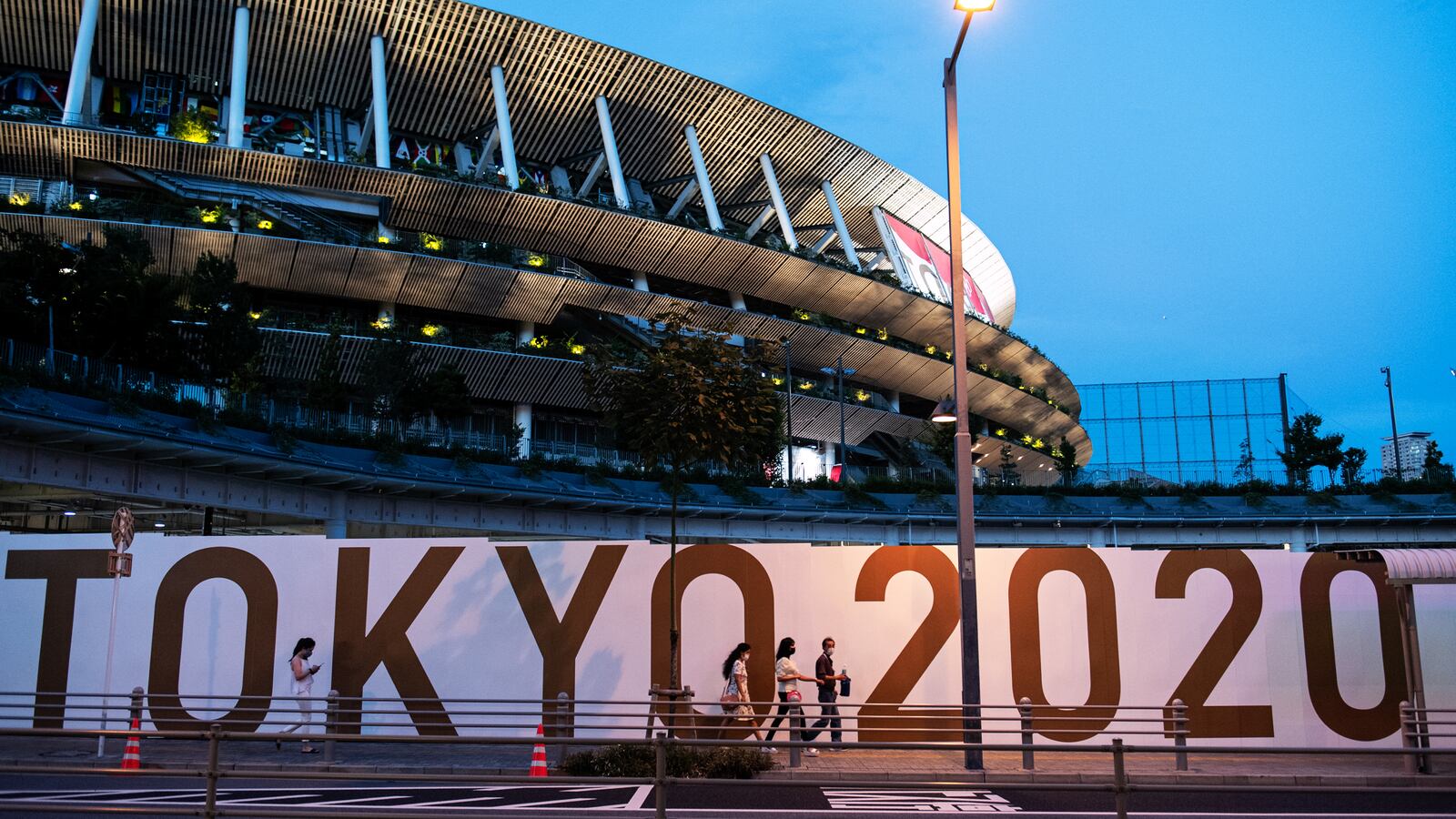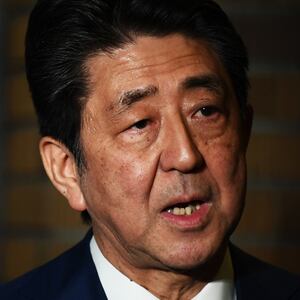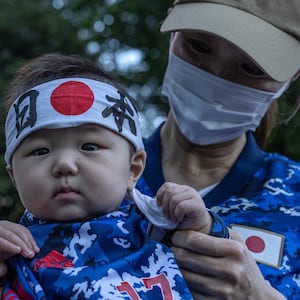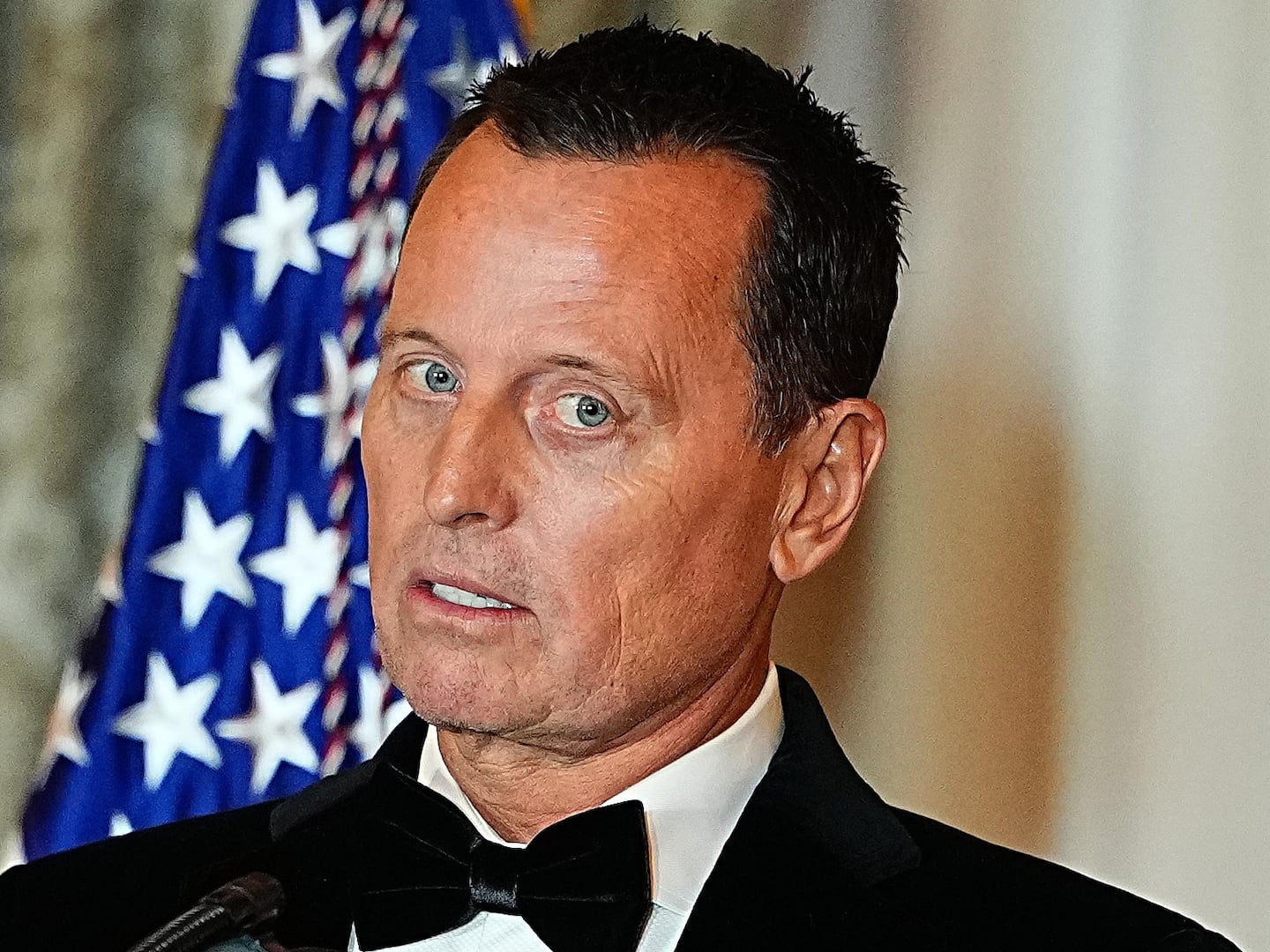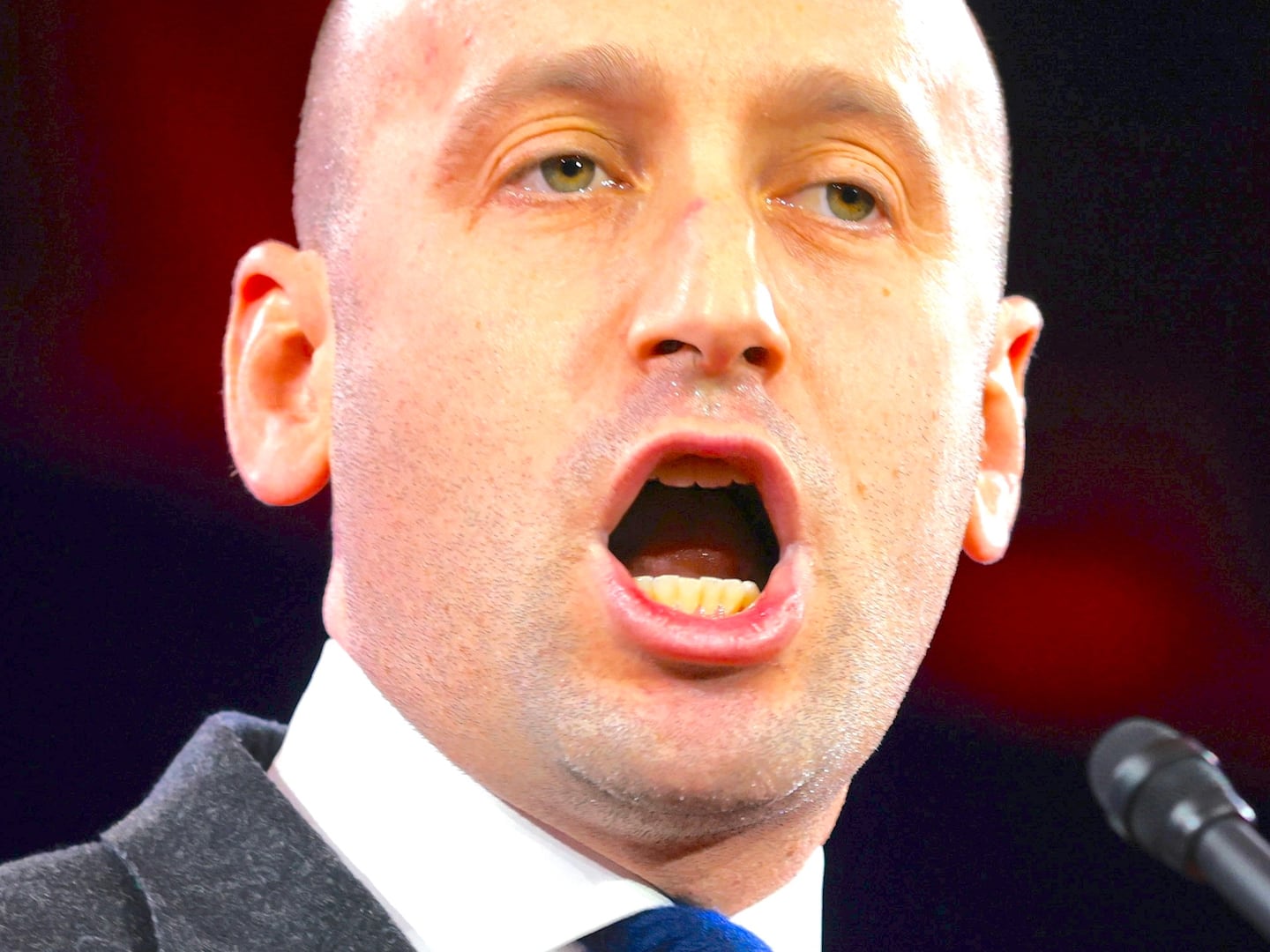On July 20, three days before the Olympics began, a woman in her 30s from Peru tested positive for COVID-19 at Haneda Airport in Tokyo and was immediately flagged as a probable carrier of the highly infectious Lambda variant of COVID-19.
However, The Daily Beast has learned that Japan’s Ministry of Health, after making a conclusive determination on the identity of the variant, omitted any mention of the new case from its regular press releases on July 30 and Aug. 6.
The passenger’s samples were promptly sequenced and submitted to an international influenza virus database as a Lambda variant on July 26. But Japan’s Ministry of Health, Labor, and Welfare deliberately left the information out of its press briefings and releases, according to employees of the ministry who spoke with The Daily Beast; we also obtained documents released to the Japanese media. The variant, first detected in Peru in December 2020, is highly infectious and potentially resistant to vaccines.

The Aug. 6 press briefing.
Ministry of Health, Welfare, and Labor“We worked around the clock to make the call and sound the alarm, and the Ministry kept quiet—and had no intentions of announcing until today—when the minister of health had his scheduled press conference,” an employee of Japan’s National Institute of Infectious Diseases (NIID) told The Daily Beast on the condition of anonymity. Norihisa Tamura, the current minister, regularly briefs members of the ministry press club on relevant issues. The discovery of new COVID-19 variants in Japan is typically announced at a press conference.
According to the NIID employee, since early July, Japan had been strengthening its ability to detect variants at all airports in the country. On July 17, the Lambda variant was placed on a watch list due to concerns from preliminary scientific reports that the variant could be highly transmissible and possibly vaccine resistant. On July 20, when the passenger from Peru tested positive for COVID-19, alarm bells went off.
“In Peru, close to 90 percent of all new COVID-19 cases are due to the Lambda variant,” the employee said. “When the sample came and we knew where the woman was from, logically we were already looking for the Lambda variant and expected to find it.”
The lab work on the samples obtained from the traveler at the airport was made a top priority and by July 25, the results were conclusive. On July 26, three days into the Olympics, the genome sequence of the detected Lambda variant was submitted to GISAID, an international database of influenza viruses including SARS-Cov-2 variants.
GISAID, in response to queries from The Daily Beast, confirmed in an email, “[The] sequence has been submitted to GISAID on July 26 which indicates a very fast turnaround time by Japan’s National Institute of Infectious Diseases.”
“Well, it’s nice to see GISAID recognize our fast turnaround, but I wonder why we rushed when the information was just going to be held back until a convenient time. We are scientists, not politicians, so I can only speculate on the reasons,” the NIID source said.
The Daily Beast reporters working on this story first published an article on the discovery of the Lambda variant in Japan, on Aug. 6, at 12:06 a.m. Japan time. The Ministry of Health issued an announcement to the press on the morning of Aug. 6 listing all the COVID-19 variants detected in Japan at airport quarantine centers. But the press release only highlighted the detection of the Alpha and Delta variant from international travelers. Furthermore, the list of dates including passenger information begins from July 21, the day after the Lambda variant was detected, completely omitting the variant from the timely report.
There is no mention of a female traveler in her 30s residing in Peru testing positive for COVID-19 at Haneda. The reports on the findings of variants at Japan’s airports are released on a nearly weekly basis. A subsequent report released on July 30 also omitted any mention of the Lambda variant being discovered.
The Ministry of Health only publicly admitted to finding the Lambda variant on the evening of Aug. 6, after repeated inquiries from The Daily Beast. The ministry has asserted that since the individual carrying the variant was spotted and isolated at the airport, the variant has not “landed” in the country.
Japan’s Ministry of Health has a long history of cover-ups and altering data to suit the needs of the ruling administration.
In the 1980s, the ministry suppressed reports that unheated blood products were transmitting AIDS to hemophilia patients and did not urge the use of safe alternative products that were readily available. The courts found that the reports were suppressed to benefit a Japanese pharmaceutical company, and former ministry officials involved in the scandal were convicted of criminal negligence resulting in injury and death in 2000.
Most recently, in 2018, as then-Prime Minister Shinzo Abe, of the Liberal Democratic Party, was pushing forward a labor reform bill, ministry officials submitted falsified data to the Japanese parliament, which supported Abe’s assertions that discretionary labor would benefit workers. Some of the work data compiled by the Ministry of Health showed employees working more than 24 hours in a single day. The government had to retract the data, and several ministry officials were disciplined. A senior secretary of the prime minister had met with ministry officials around the period that the data was tampered with.
Update: Several hours after the publication of this article, the Ministry of Health responded to a comment request from The Daily Beast. A spokesperson denied that the ministry had deliberately omitted the Lambda variant findings, claiming that the information wasn't included in reports because it didn't meet the “internal criteria of what should be announced in a weekly report.”
Full statement: “We did not deliberately omit the findings of the Lambda variant from our reports or briefings. The World Health Organization has ranked the Lambda variant as a variant of interest (VOI) (requiring further study) rather than a variant of concern (VOC). Within Japan, that ranking hasn’t been determined yet. Therefore, it didn’t meet our internal criteria of what should be announced in a weekly report. When queried, we did speak to the press.” The Ministry of Health also denied deliberately withholding the announcement due to the Olympics, saying, “We have no motivation to do that.”
